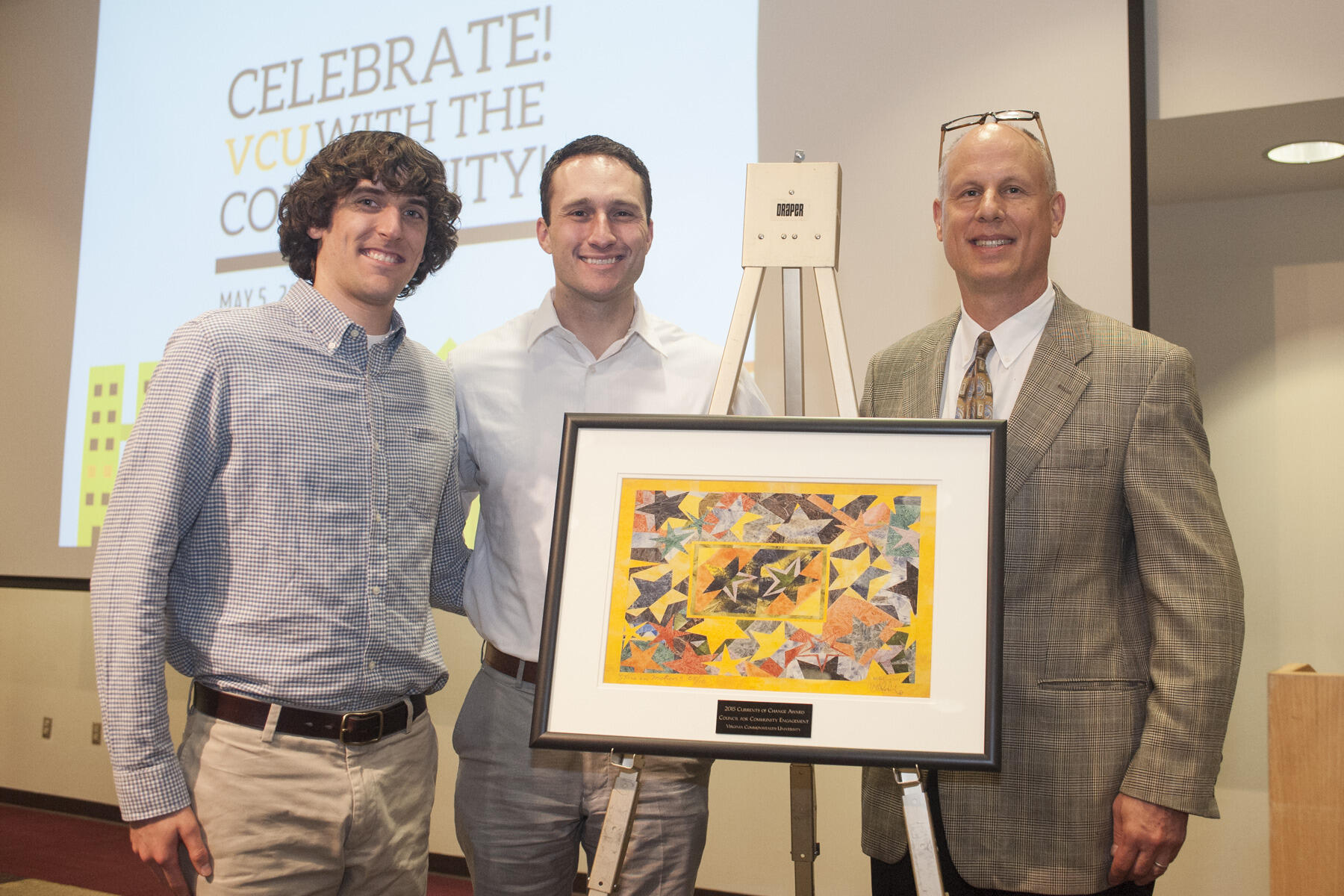Dec. 2, 2015
Pro bono collaboration helps meet critical mental health care needs in Richmond
Share this story
When three safety net primary care clinics in Richmond found they could not fully meet the mental health needs of their patients, they knew they had to find a solution to provide these critical services to the city’s most vulnerable populations.
With over half of all patients receiving substandard or no mental health care, the clinics needed to provide thousands of behavioral care sessions to their patients. But where to find a group of psychologists willing to contribute hundreds of hours of work at little or no cost?

Bruce Rybarczyk, Ph.D., a professor in Virginia Commonwealth University’s Department of Psychology in the College of Humanities and Sciences and an alumnus who earned his master's and Ph.D. from VCU, had the perfect answer: his doctoral trainees. As a result, since 2008, trainees have delivered more than 10,000 pro bono sessions at the Ambulatory Care Center on the VCU Health MCV Campus, the Daily Planet for the Homeless, the Fan Free Clinic and VCU Health’s Hayes E. Willis Health Center.
The Safety Net Primary Care Psychology Collaborative has proved fruitful for everyone involved. The clinics are able to better cover the mental health needs of their patients, while the doctoral students get valuable experience working with a wide range of patients. Most importantly, the medically underserved in the Richmond community get access to the care they need.

Rachel Waller, M.D., has seen the benefits of the collaborative firsthand through her work on the internal medicine service at the Ambulatory Care Center.
“Integrating mental and physical health care is important because you cannot have good control of physical health outcomes when mental health issues such as anxiety and depression go untreated,” said Waller, who earned her medical degree from the School of Medicine. “In our patient population, with limited care access and transportation issues, having psychology resources available during the primary care visit is vital.”
In our patient population, with limited care access and transportation issues, having psychology resources available during the primary care visit is vital.
“The ‘warm handoff,’ in which a primary care provider introduces the clinical psychology services team to the patient can really improve willingness to seek care, particularly since there remains an unfortunate stigma for many in acknowledging that they are experiencing mental health issues.”
Integrating mental and physical health care services at the clinics has been an effective method for improving patient outcomes. Behavioral and physical health problems are often interconnected; treating one side of a patient’s problems but not the other often means more care, and more costs, down the road. Study findings show patients receiving this type of integrated health care had fewer hospitalizations and emergency room visits.
These results are evident on the VCU Health MCV Campus. Waller, who works as an assistant professor in the Department of Internal Medicine in the School of Medicine, said the clinic has seen “decreased admission rates for medical illness for our patients who utilize clinical psychology students compared to controls.”
The success of the program has not gone unnoticed. This year the collaborative won VCU’s Currents of Change Award, which recognizes mutually beneficial partnerships between the university and the Richmond community.
This experience in collaborative, team-based care is invaluable for both medical and psychology trainees. Since the collaboration began, 80 doctoral students have worked at the clinics, six of whom have gone on to work in integrated care positions as a result of their experience at VCU.
Medical residents also benefit from the help offered by their colleagues in the psychology department, as many report greater work satisfaction and significant benefits for their patients since the collaboration started.
Waller says that outpatient care is moving from a model that emphasizes productivity to one that focuses on medical outcomes. Cohesive, interdisciplinary teams like the collaborative will be better equipped to meet the demands of the newly emerging outpatient medical system.
The collaborative has been funded for three years by the HRSA Graduate Psychology Education program, and this past summer additional support was received from the Virginia Health Care Foundation and the Richmond Memorial Health Foundation.
Subscribe to the weekly VCU News email newsletter at http://newsletter.news.vcu.edu/ and receive a selection of stories, videos, photos, news clips and event listings in your inbox every Thursday.
Subscribe to VCU News
Subscribe to VCU News at newsletter.vcu.edu and receive a selection of stories, videos, photos, news clips and event listings in your inbox.








